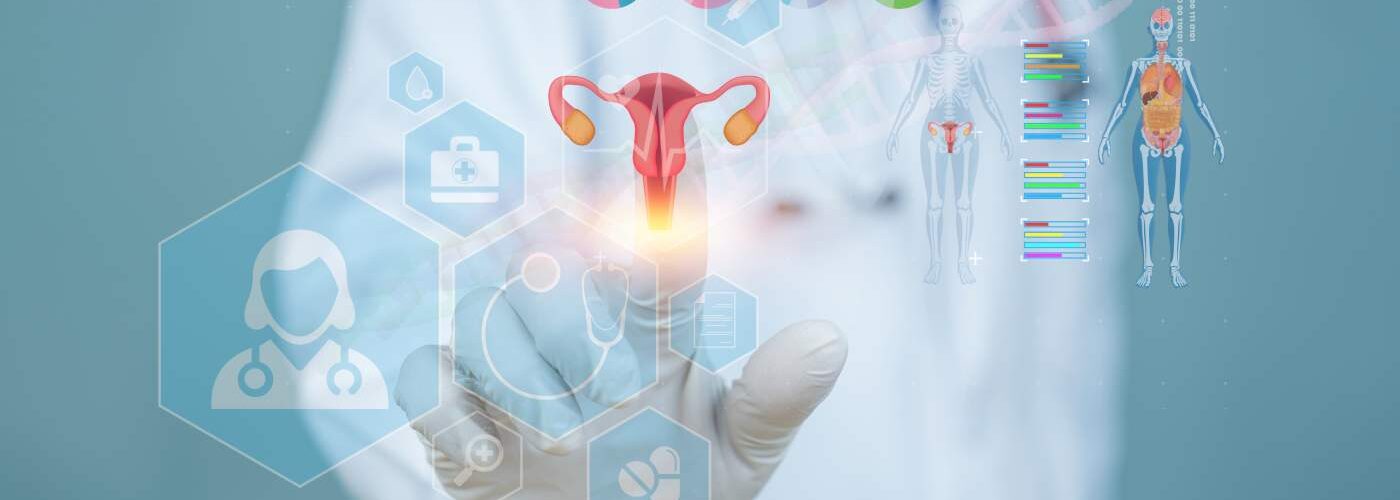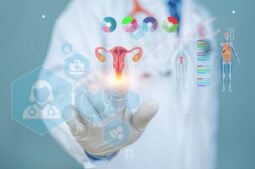
The ASEBIR 2025 Congress showcased how artificial intelligence and new omics technologies are transforming the approach to fertility treatments. Thanks to these innovations, specialists can better analyze eggs, sperm, and embryos—enhancing selection accuracy and improving outcomes.
What Is the Impact of Artificial Intelligence on Assisted Reproduction?
Artificial intelligence (AI) is becoming an essential tool in assisted reproduction. This technology enables the analysis of vast amounts of data and subtle details that previously went unnoticed. This helps specialists more accurately identify the eggs, sperm, and embryos with the highest fertilization potential.
At the ASEBIR 2025 Congress, held in Barcelona, IVI specialists presented research showing how AI can more precisely predict which eggs will reach the blastocyst stage—a key milestone prior to embryo transfer. These advances help optimize clinical decision-making and improve outcomes in in vitro fertilization (IVF) treatments.
Advances in Reproductive Medicine Through Omics Technologies
With the application of omics technologies—such as genomics, transcriptomics, and proteomics—researchers can now gain deeper insight into reproductive cells and their function. This opens new possibilities for understanding fertility.
At the ASEBIR 2025 Congress, the IVI research team presented new findings on the role of the sperm proteomic profile. Their studies revealed that certain proteins are linked to successful embryo development. The findings show that sperm has a more active influence on early embryonic stages than previously assumed. This knowledge supports the development of fertility treatments tailored to each patient’s unique biological profile.
As explained by Dr. Marga Esbert, embryologist and research coordinator at IVI Barcelona and member of the ASEBIR 2025 Scientific Committee: “Artificial intelligence and omics technologies not only help us better understand how an embryo develops but also improve our ability to make decisions based on objective and standardized data.”
Why Use AI in Assisted Reproduction?
The integration of artificial intelligence with omics technologies in fertility laboratories is revolutionizing assisted reproduction, making it more precise, safe, and personalized for every patient.
Among the main advantages are:
- Improved embryo selection. Advanced algorithms make it possible to identify embryos with the highest likelihood of successful implantation.
- More reliable predictions. AI analyzes clinical and biological data to anticipate expected outcomes in each IVF cycle.
- Greater transparency for patients. Data-driven insights help patients understand why certain embryos have higher chances of success.
- Consistency across laboratories. The use of digital systems minimizes variability and enhances objectivity in analyses.
- Optimized processes. More precise embryo selection helps shorten the time to pregnancy and reduce the number of treatment cycles required.
Key Research Highlights at ASEBIR 2025
At the 13th ASEBIR Congress, IVI presented its latest fertility research, showcasing how technological innovation is transforming assisted reproduction. The most relevant developments include:
AI for Predicting Embryo Development
A new algorithm analyzed over 1,200 donor eggs and accurately predicted which would reach the blastocyst stage—an essential step before transfer.
Technology That Supports Embryologists
Some systems provide precise data on embryos and sperm, combining traditional observation with quantitative measurement tools.
Extended Embryo Culture
By optimizing incubators, researchers were able to culture embryos up to day 11, revealing previously inaccessible developmental stages and offering new insights into growth and adhesion.
Comprehensive Sperm Analysis
Proteomic analysis revealed that specific sperm proteins are linked to irregular embryonic divisions—demonstrating a more active role for the male gamete in embryo quality.
How Do These Advances Impact Patients?
For individuals undergoing fertility treatment, these innovations represent real, tangible progress. Artificial intelligence not only plays a crucial role in the laboratory but also enhances patient experience by enabling highly personalized treatments tailored to age, medical history, and genetic profile.
Through AI, patients receive clearer and more precise explanations for medical decisions—fostering understanding, confidence, and emotional reassurance throughout treatment.
According to Mireia Florensa, IVF laboratory director at IVI Barcelona and member of the ASEBIR 2025 Organizing Committee: “Every new discovery brings us closer to turning science into new opportunities for life.”
Conclusions
- The ASEBIR 2025 Congress highlighted how artificial intelligence and omics technologies are transforming fertility treatments.
- AI enables more accurate analysis of eggs, sperm, and embryos, optimizing selection and IVF outcomes.
- The combination of AI and omics makes treatments safer, more personalized, and better adapted to each patient’s age, medical history, and genetic profile.





Comments are closed here.